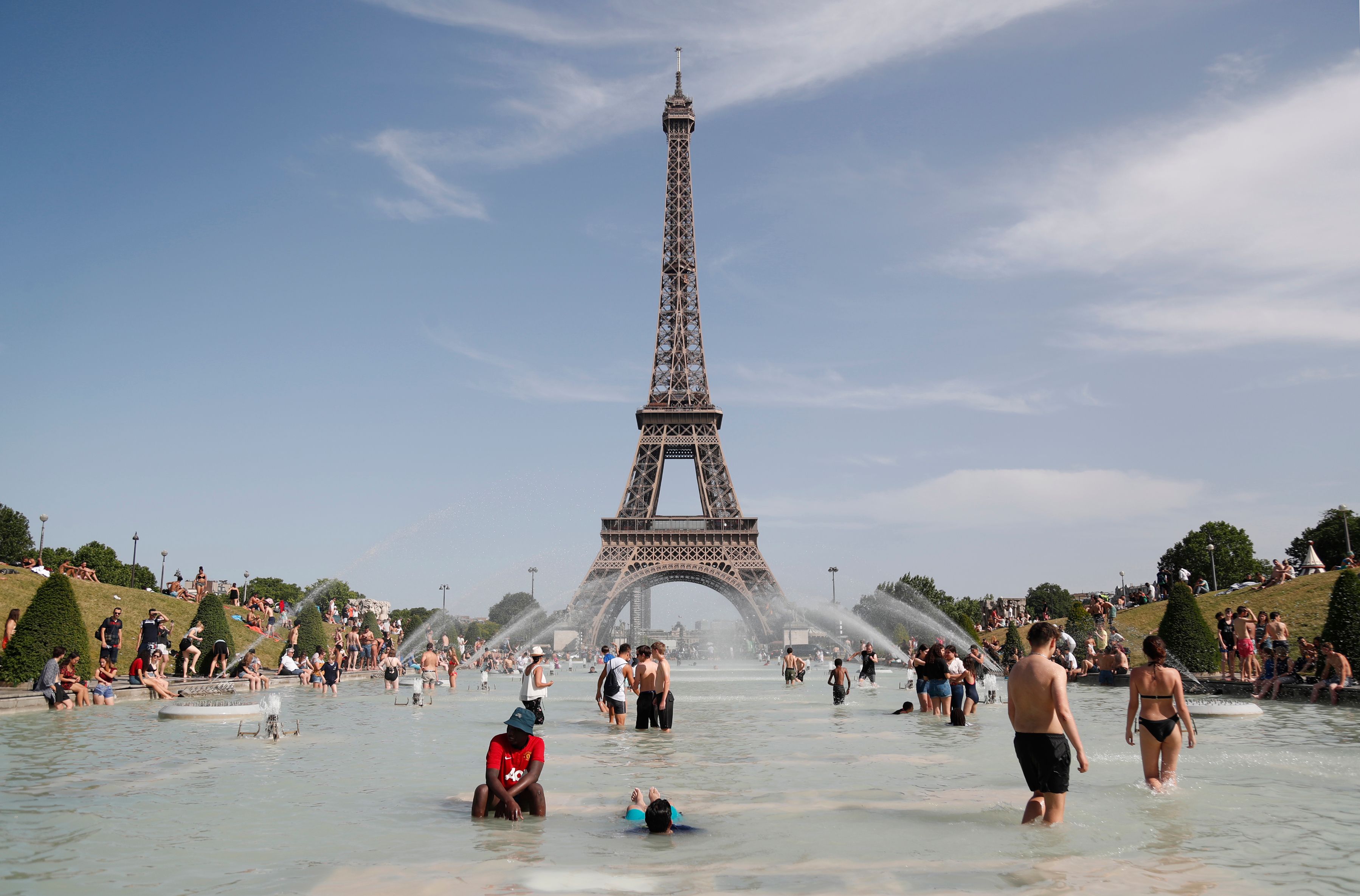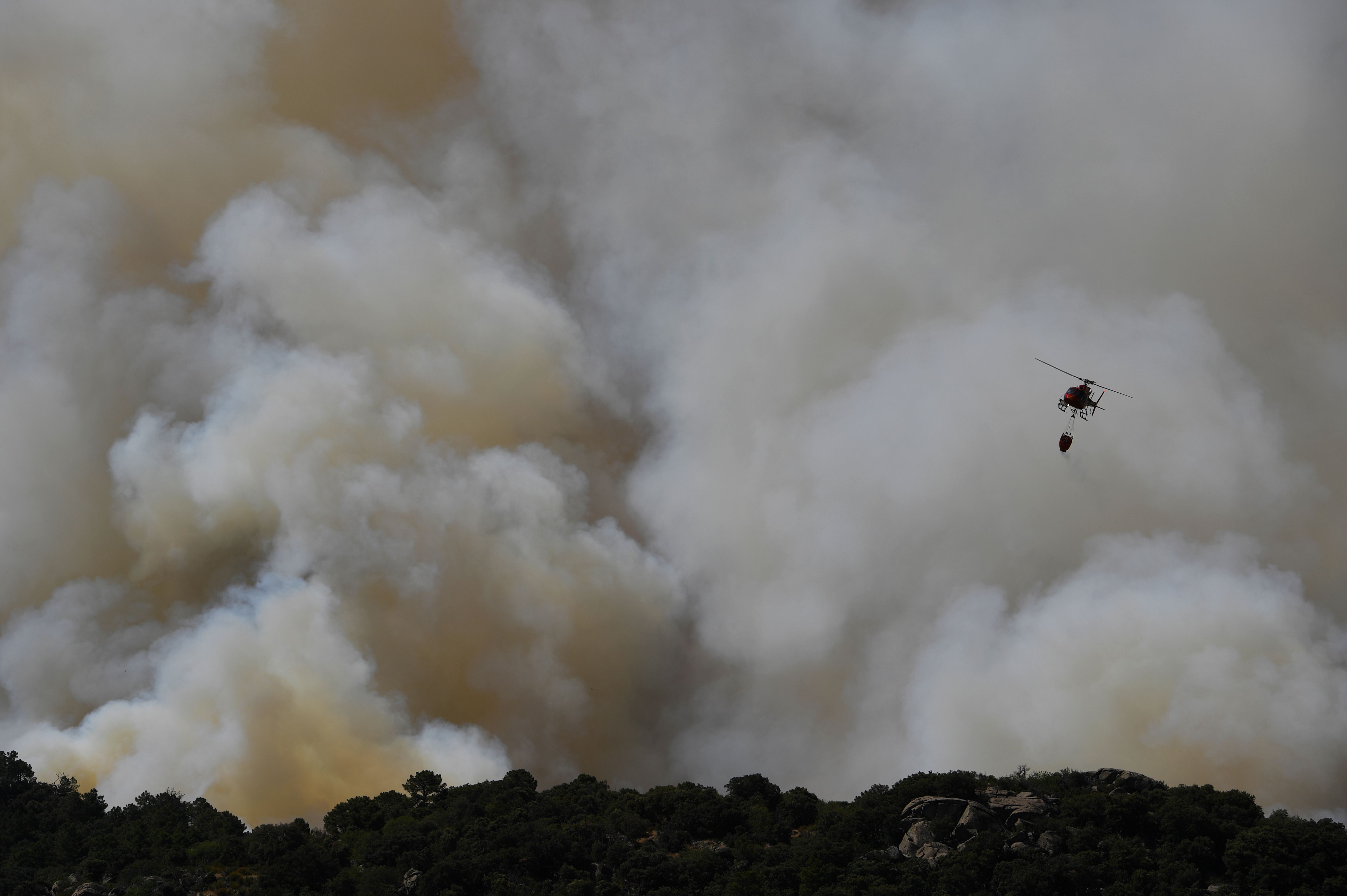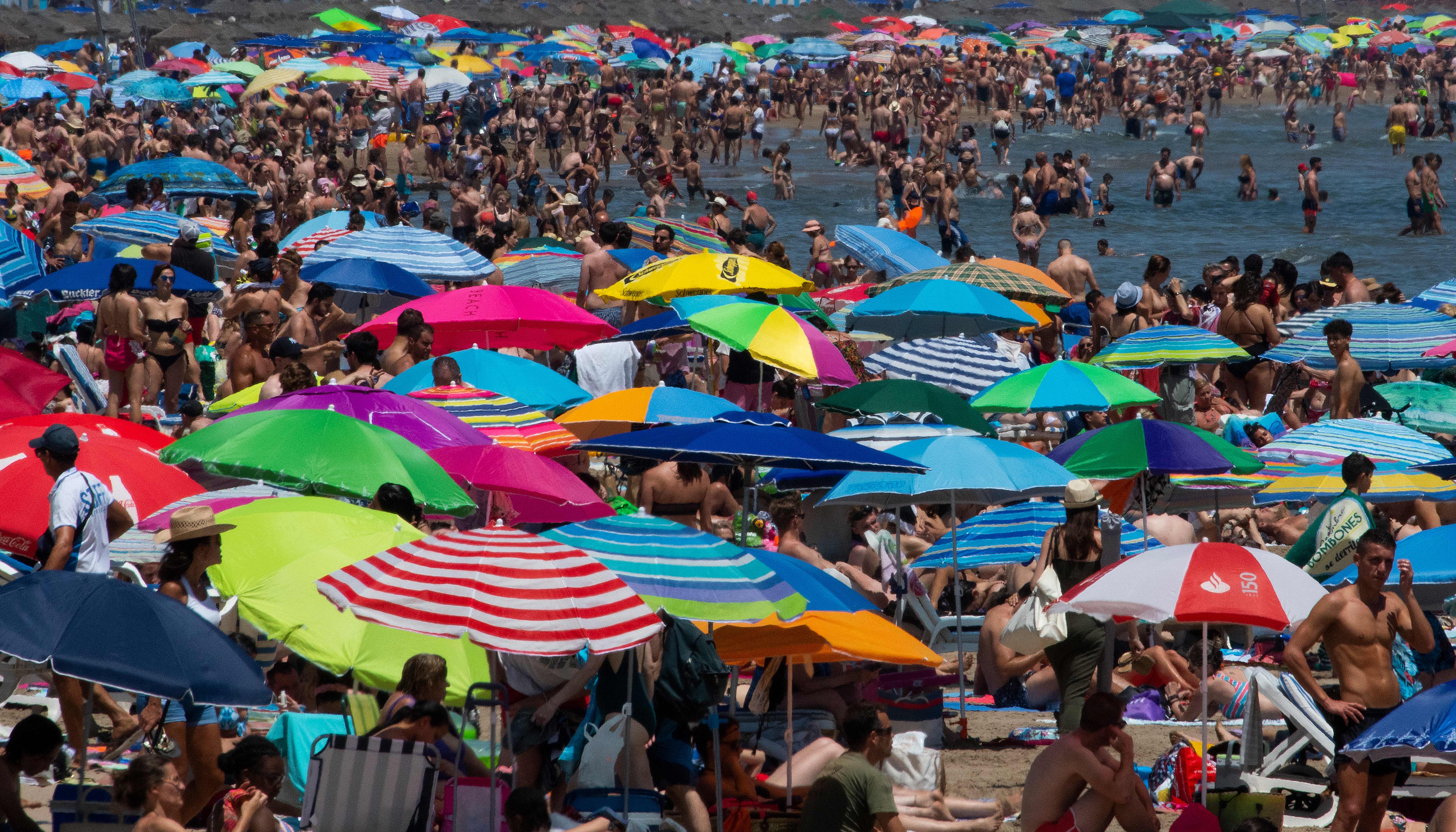A scorching heat wave throughout much of Europe in the last week of June brought the average recorded temperature for the month to an all-time high, both in Europe and globally, according to data from the European Union’s Copernicus Climate Change Service.
Eight countries experienced their highest temperatures ever recorded in the month of June, including France when it reached a sweltering 114.6 degrees Fahrenheit in Gallargues-le-Montueux—the hottest temperature ever recorded in the country in any month.
At least 10 people were confirmed dead from the European heat wave, and, in Paris, the government implemented a ban on cars with poor emissions ratings in an attempt to counteract an increase in air pollution and poor air quality brought on by the higher temperatures. The ban affected more than half the cars registered in the region.
The heat also contributed to major wildfires burning in Spain and France. One fire in Spain reportedly got its start when a pile of manure self-ignited from the heat.
In a press release published Tuesday, E.U. researchers noted that, while it can be difficult to directly link heat waves to climate change, “such extreme weather events are expected to become more common as the planet continues to warm under increasing greenhouse gas concentrations.”
Other research groups studying the link between the heat wave and climate change say that human activities made the heat wave in France five times more likely to occur.
June also broke records for the amount of carbon dioxide emitted from wildfires burning in the Arctic circle. Wildfires burning in the Arctic released more than 50 megatons of carbon dioxide, according to scientists who were also using Copernicus data. Vice News reports that’s more than all of the carbon dioxide released from fires in the region in the same month from 2010 through to 2018 combined.
Based on what we saw in June, it should come as no surprise that temperatures are already soaring to new record-breaking heights in July. On July 4th, Anchorage, Alaska, experienced an all-time recorded high of 90 degrees Fahrenheit—five whole degrees higher than the previous record. The heat wave prompted officials in Anchorage to cancel the city’s fireworks display due to concerns about wildfire.
Here are selected images from the heat wave in Europe and Alaska.


(Photo: Zakaria Abdelkafi/AFP/Getty Images)

(Photo: Thierry Zoccolan/AFP/Getty Images)

(Photo: Pierre-Philippe Marcou/AFP/Getty Images)

(Photo: Guillaume Souvant/AFP/Getty Images)

(Photo: Jose Jordan/AFP/Getty Images)

(Photo: Jean-Pierre Clatot/AFP/Getty Images)

(Photo: Lance King/Getty Images)





